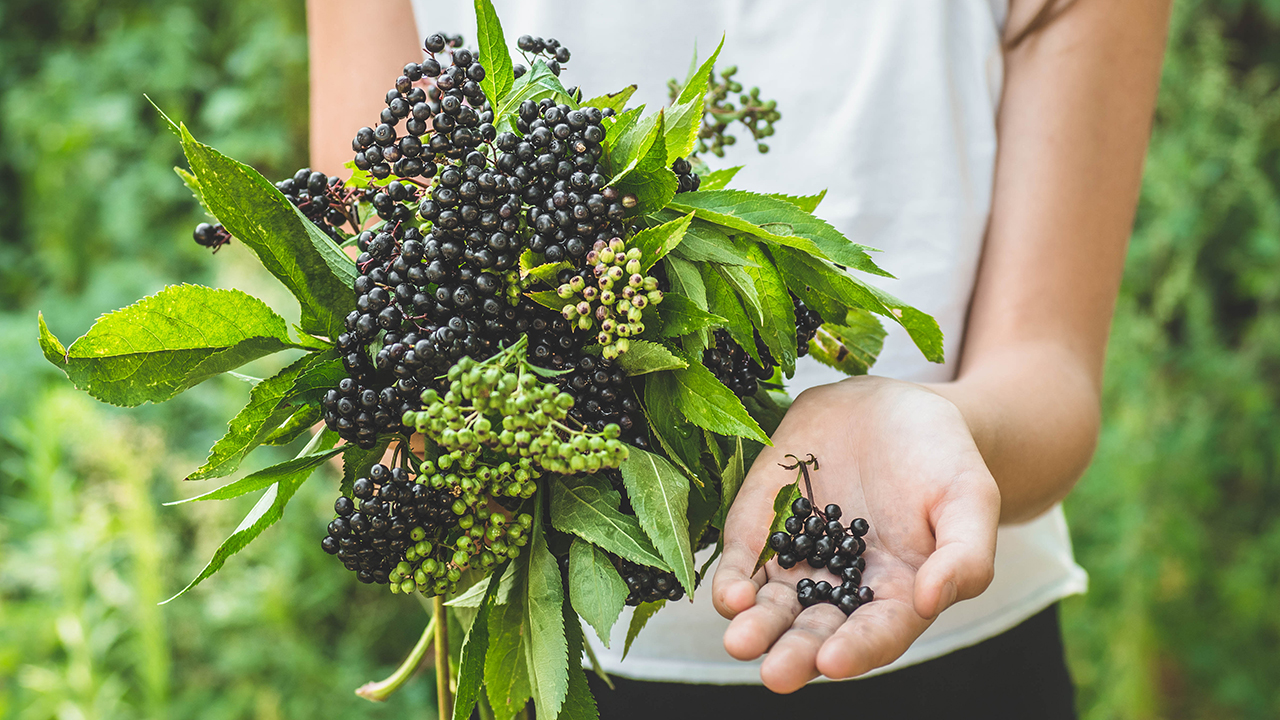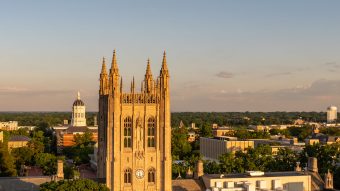Dec. 2, 2021
Andrew Thomas has big plans for a small berry. Thomas, research assistant professor in the Division of Plant Science and Technology in the College of Agriculture, Food and Natural Resources (CAFNR) at the University of Missouri, recently received a Specialty Crop Research Initiative grant from the U.S. Department of Agriculture for the project Moving American Elderberry into Mainstream Production and Processing. The award is for $5,345,255 over a four-year period.
Elderberry is a native plant found all over the Midwest and eastern United States. Thomas, who has conducted elderberry research for 24 years at CAFNR’s Southwest Research, Extension and Education Center at Mount Vernon, Missouri, has found the demand for elderberry products has increased in the last several years.
“Elderberry production in Missouri has started to boom,” he said. “It has become the No. 1 berry crop in Missouri, now surpassing blackberries and strawberries combined.”
Thomas said there are several moving parts to this project, including horticulture, plant breeding, food science, human health, mechanical harvest, economics and a strong outreach component.
“I always get questions of: Will, for example, an Oklahoma variety grow well in Missouri or even in Canada?” Thomas said. “My answer has always been ‘I don’t know,’ but now we will have the resources to find out.”
Thomas and his team will plant different varieties in five different locations across the Midwest. These sites will host field days and events to educate the public about elderberries and the industry.
The project involves collaborations with many researchers across numerous disciplines at MU, but also with institutions across the country.
“I am so fortunate not only to have connections with a team of incredible researchers and Extension faculty at MU, but also to have terrific connections with experts at other institutions,” Thomas said. “Without them none of this would be possible.”




